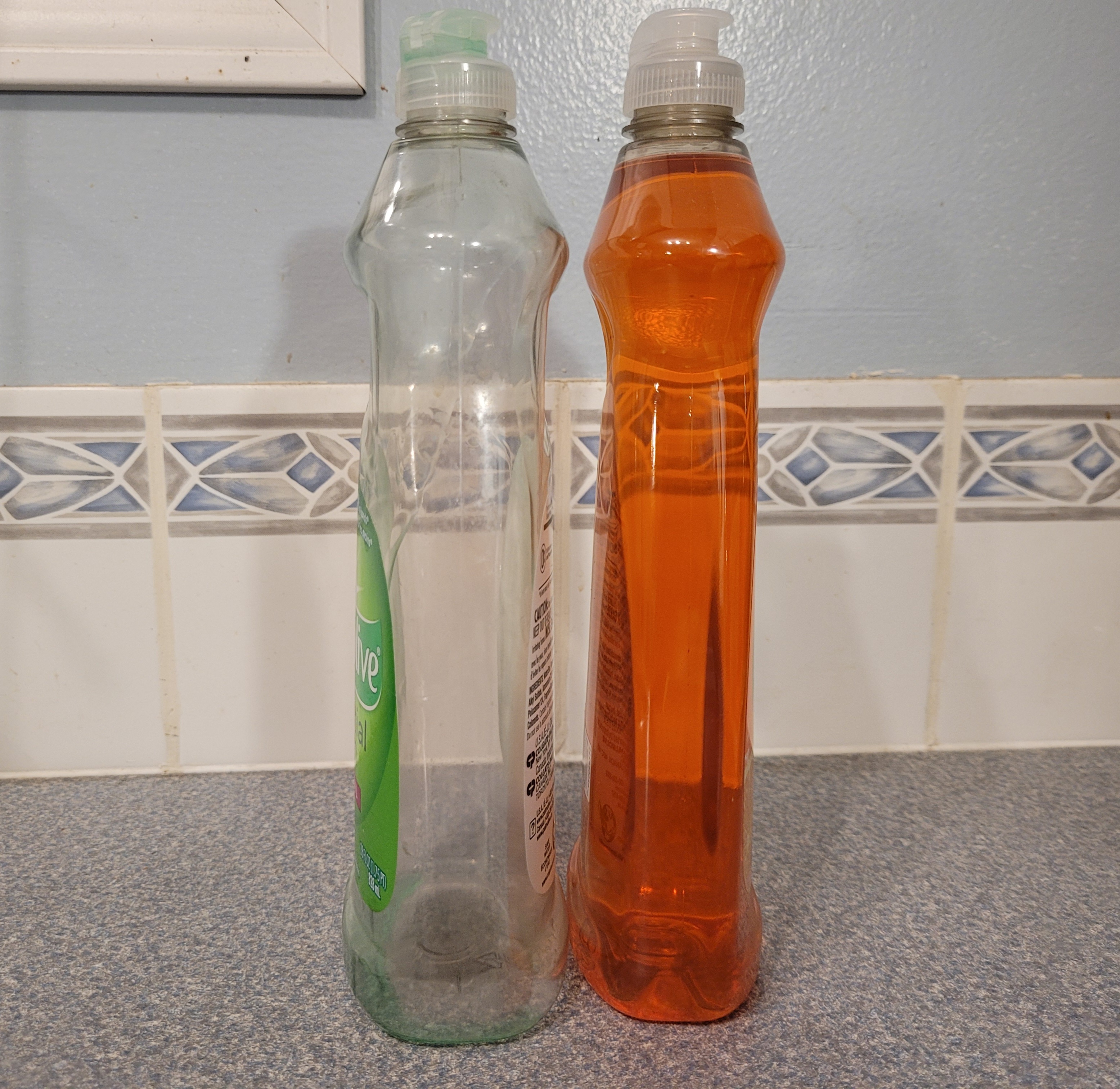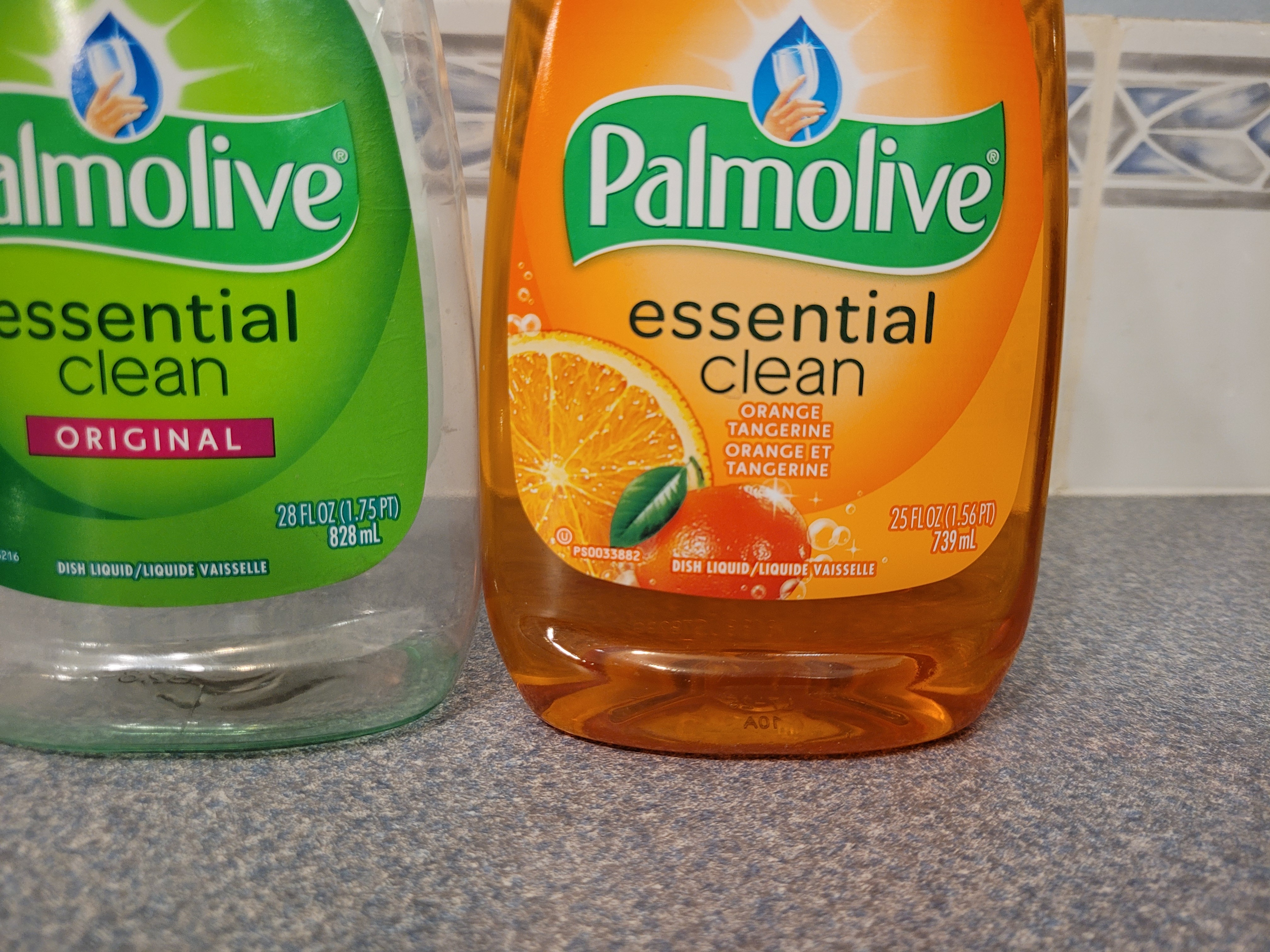Go to your local restaurant supply place and go buy the 1 gallon jug instead for half the price.
Shrinkflation
A community about companies who sneakily adjust their product instead of the price in the hopes that consumers won't notice.
We notice. We feel ripped off. Let's call out those products so we can shop better.
What is Shrinkflation?
Shrinkflation is a term often coined to refer to a product reducing in size or quality while the price remains the same or increases.
Companies will often claim that this is necessary due to inflation, although this is rarely the case. Over the course of the pandemic, they have learned that they can mark up inelastic goods, which are goods with an intangible demand, such as food, as much as they want, and consumers will have no choice but to purchase it anyway because they are necessities.
From Wikipedia:
In economics, shrinkflation, also known as the grocery shrink ray, deflation, or package downsizing, is the process of items shrinking in size or quantity, or even sometimes reformulating or reducing quality, while their prices remain the same or increase. The word is a portmanteau of the words shrink and inflation.
[...]
Consumer advocates are critical of shrinkflation because it has the effect of reducing product value by "stealth". The reduction in pack size is sufficiently small as not to be immediately obvious to regular consumers. An unchanged price means that consumers are not alerted to the higher unit price. The practice adversely affects consumers' ability to make informed buying choices. Consumers have been found to be deterred more by rises in prices than by reductions in pack sizes. Suppliers and retailers have been called upon to be upfront with customers.
https://en.wikipedia.org/wiki/Shrinkflation
Community Rules
- Posts must be about shrinkflation, skimpflation or another related topic where a company has reduced their offering without reducing the price.
- The product must be a household item. No cars, industrial equipment, etc.
- You must provide a comparison between the old and new products, what changed and evidence of that change. If possible, also provide the prices and their currency, as well as purchase dates.
- Meta posts are allowed, but must be tagged using the [META] prefix
n.b.: for moderation purposes, only posts in English or in French are accepted.##
Great idea, I'll just drive 4 hours to my local restaurant supply store for some dish soap.
Sounds even better if you don't have a car like me.
Really need a law that if the amount, or recipie changes it is notified on the packaging for... 3 months?
Man that would be great but you know these companies are just gonna claim its an entirely different product to get around that
I feel like if we had an independent crowd sourced site or something to track these it would have better visibility
I feel like openfoodfacts could be relevant to that - there are a lot of non-food grocery items tracked like dish soap. But yeah the main challenge would be tracking sku changes since openfoodfacts is based on barcodes. But the openfoodfacts database would be a good starting point since it has lots of data like container size and stuff.
One possible way to track it would be to show a banner on any item that has had a recent quantity change. If a new sku is introduced, they could track when one product code replaces another, and show a similar warning (or if that is too hard to track, a warning when a sku is newer than x months would alert you so that you don't mistake it for that product you've regularly bought for years).
Either way I'm not sure how it would be made low friction enough to be practical since openfoodfacts requires you to scan each items barcode to see details, unless you had like AR glasses that auto scanned products and showed warnings from openfoodfacts.
I agree that companies would try to get around it, but that's what government agencies are for, and the fact they will try and Weasle out of it doesn't mean we shouldn't try
I remember something like that happened for toilet papers in Brazil many years ago. Many brands reduced the roll length and there were an outcry among the people. In the end a law was created to do exactly that what you said, but this didn't stopped companies to continue shrinking products
Here is an example with the warning in yellow
In a world where we should be using less packaging this sort of practice just increases more waste.
Once again demonstrating that corporations don't give a fuck about anything except constantly increasing their profit.
The customer doesn't matter. The survival of the planet doesn't matter.
As long as profit increases every single quarter the world could burn for all they care.
In general I agree this is a true statement, but for this particular bottle it is blow molded from the same preform and so weather they blow the shape narrow or wider it is same amount of plastic. But you obviously buy more bottles due to less soap.
Yes. My point was you now need to buy more frequently. So producing more wastage.
Same thing happened to my deodorant. I looked at the shelves recently, and ALL the deodorant was now the same redesign, down to the gram.
I'm convinced that theres actually like 4mm of deodorant in these friggin tubes anymore. I just bought my deodorant, and it's already showing the bottom.
I'm 70% sure they made the deodorant stick shorter on the inside too. It seems to run out way faster now. Same bottle, much more single use plastic thrown in the landfill....
Seventh generation that we use went down from 25oz to 19oz.


